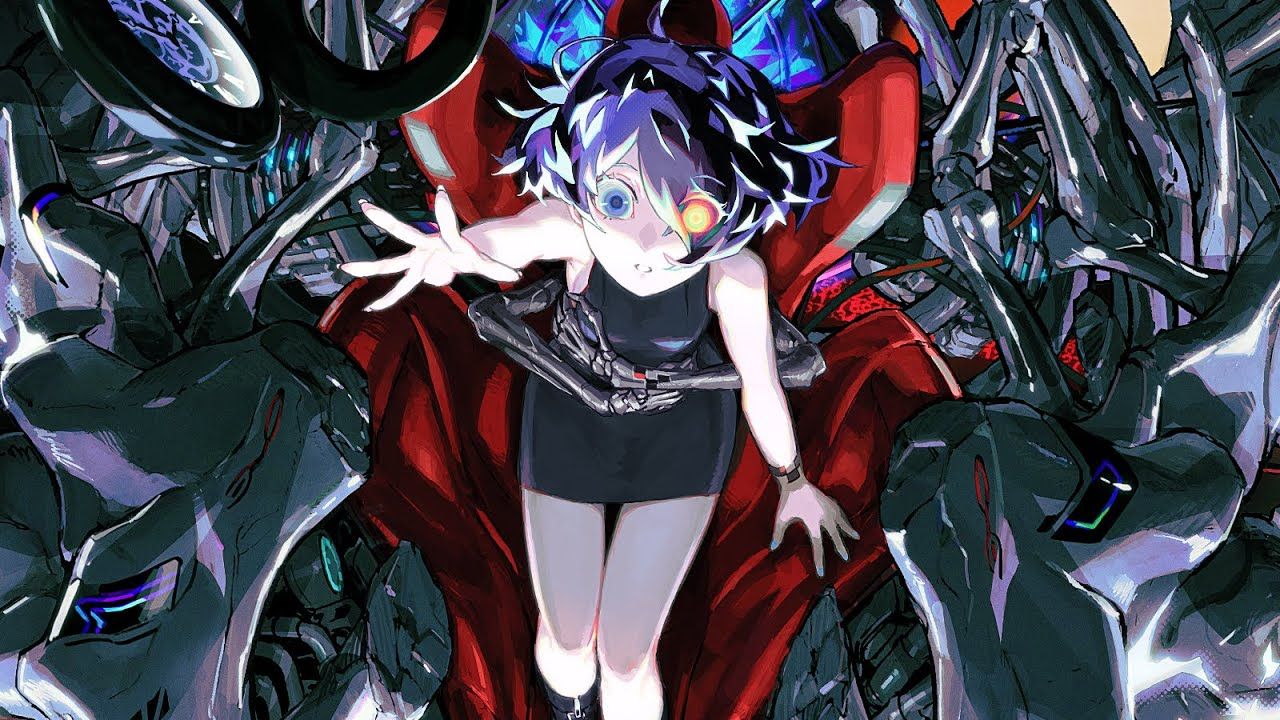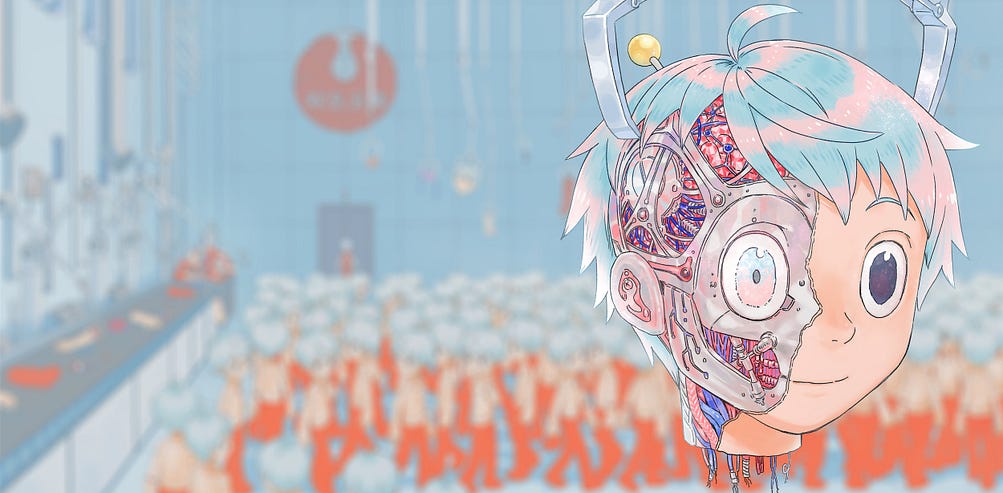One in a Mili-on
Westerners are missing out on one of the most unique sounds in gaming

In the past ten years, developers have more frequently commissioned bands and solo artists to create original tracks for their games. I’m not talking about licensed Rolling Stones songs in Guitar Hero — I’m talking lyrical, cinematic pieces tailored to the premise of a game itself, as is often done in film. Indie performers like Adriana Figueroa, whose voice has now been featured in Cadence of Hyrule, VA-11 HALL-A, Ikenfell, and more, have been granted a new and expanding platform to showcase their music all over the world.

One such talent has gained incredible popularity overseas: Mili, a Japan-based indie band with an impressive catalogue of work in games, animation, television, and film.
If you’re into rhythm games, you may have already heard some of Mili’s work. The band formed in August 2012 and found its first big break later that year. Their songs “Chocological”, “Utopisphere”, and “Fable” feature in Rayark Games’ 2012 release of story-driven, fingertip-crushing Cytus. In 2013, Rayark released another beloved niche title: Deemo, a piano-oriented experience that includes an even larger catalogue of Mili’s music. It’s safe to say that Rayark recognized Mili’s strengths early on, and helped boost the band to even greater heights.
Gameplay from Deemo.
Mili’s sound might best be described as “digital fusion”, a genre term coined by Steven Universe composers Aivi and Surasshu. Aivi describes digital fusion as “music that combines elements from various genres… and computer music (e.g. classic video game music, keyboard demos) and features solos or other parts of the music programmed via computer software”. It is the union of the old and the new — both classical music and jazz are prominent influences in this genre, infused with digital elements to create chill lo-fi beats with which to study.
At the heart of jazz is the idea of improvisation, of musical freedom to express oneself in a world that denied its black creators agency; digital fusion, following in its footsteps, adds another layer of novel unpredictability to the mix with the advent of computer software and synthesizers. As an addendum, if you’re looking for more artists making great jazz-informed digital fusion tunes, check out Omniboi, a personal favorite of mine.
Source: YouTube.
In “Imagined Flight”, Mili’s Yamato Kasai weaves a characteristically sonorous piano melody (alongside drummer Shoto Yoshida’s hypnotic rhythm) that compliments vocalist Cassie Wei’s breathy tones. There is a pervasive melancholy in much of Mili’s music — delicate chimes, aching violins, and haunting piano solos arranged by Kasai project a sense of longing for the vastness of the world, and a wistful regret that we cannot live a hundred lifetimes to take it in.
Desire, too, underscores the band’s musical Mili-eu, if you will. A wish is tucked between the chords of every song; whether it’s about an AI wanting to be loved by its creator (with a killer bass line by Yukihito Mitomo), a mother protecting her child from the world’s cruelty, or a widowed lover rising to action from the ashes of grief, Mili’s sound conveys a sense of yearning unlike any other.
Source: YouTube.
A keen interest in multi-lingual storytelling is perhaps Mili’s greatest strength. Lead vocalist and songwriter Cassie Wei was born in China and raised in Canada, fluent in both Mandarin and English. The band is currently based in Japan, adding a third language to the mix — Wei draws upon all of them in her work, enabling her to experiment with syllabic stressors, cadence, and phraseology on a higher level. Better yet, Wei even incorporates imagined, unidentifiable languages to add a layer of texture and ambiguity to a given piece. At the 2:13 timestamp in “Milk” (linked above), layered chants of hypnotic syllables and harmonies sound as if the listener has stepped into another world.
My favorite work from Mili was made for Library of Ruina, a 2021 narrative-driven, card-based strategy game from South Korean indie studio Project Moon. Project Moon commissioned multiple tracks — the game’s opening theme, “String Theocracy”, is a lilting, jazzy bop that invites players into the decadent and delirious horror of Library of Ruina’s setting.
Gameplay from Library of Ruina. Source: YouTube.
Other tracks feature as themes for crucial boss fights. My personal favorite is called “Children of the City”. The song comes from the perspective of a character bereaved by fate, and its thematically inescapable nature in Library of Ruina’s polarizing, deeply classist City. Its lyrics depict commands issued to civilians that they must fulfill, or die trying; the very first line of the song asks the impossible, instructing the recipient to “sleep for a total of 800 hours per day”. It is a chilling statement about the hyper-capitalist, cult-like cruelty ever-present in the game.
Most poignant, however, are the final lines of the song — Cassie Wei’s ghostly rap vocals leave behind one last, chilling whisper.
Do not go home until you finish reading the value of e
2.71 8281
8284 5904
5235 3602
8747 1352
6624 9775
7247 0936
9995 9574
9669 6762
In this context, “e” refers to Euler’s number. It’s a crucial constant relevant to just about every field from accounting to theatrical design — most importantly, it is an irrational number, meaning it has no end. No matter how much the listener longs to return home, they never will.
For more of Mili’s music, check out their official YouTube channel and website.
